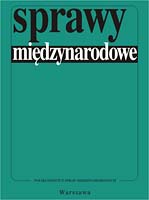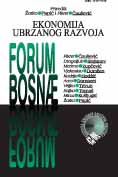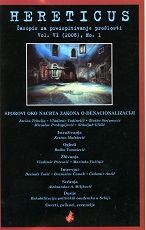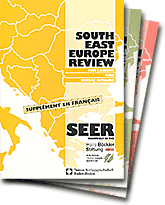
We kindly inform you that, as long as the subject affiliation of our 300.000+ articles is in progress, you might get unsufficient or no results on your third level or second level search. In this case, please broaden your search criteria.













This article aims at encompassing the Romanian context but from a different perspective. In a post-communist setting, which I would characterise as fragile in terms of its socio-economic development, EU requirements have induced a supplementary adaptation pressure concerning compliance with specific requirements in the area of employment and social policy. Thus, this article aims to discuss some developments affecting labour actors in the light of the European integration process. Moreover, the purpose of the article is to explore the responses that trade unions have provided and what they still have to provide in response to the EU pressure for adaptation, as well as how trade unions have been learning to face the challenges of European integration. I consider that, if from a legal and institutional point of view trade unions seem to have incentives for taking part in the transposition of EU demands, de facto the reality is much more complex and the responses diverse. In line with Coen and Dannreuther (2003), in this article, I am interested in analysing in which manner Europeanisation as a ‘guiding principle’ allows for ‘interpretation and incorporation’ by national trade unions. I will refer more precisely to the opportunities created by European integration and the use that trade unions make of the complex mechanisms that impact not only on the national level, but also on the sectoral and local level of interest representation. My research is based on fieldwork realised in Romania as well as on the study of primary sources.
More...

The main hypothesis of this article is that the privatisation of state-owned capital defined the structure and plotted the course of all social changes in eastern Europe after 1989. Using so-called ‘expert projects’, all the mechanisms of social restructuring have been employed to serve monopolistic capitalist capital formation. A multitude of political manipulation and domination technologies have also been used to this end. The ‘national (sovereignty) revival’ technology was instrumental in providing social consensus between the working class and the (communist) nomenclature which, according to the paradox of historical bifurcations, initiated the restoration of private ownership in ‘real socialist’ countries.
More...
This article analyses the underlying processes of EU enlargement towards south-eastern Europe. An exposition of key moments of this process will be given, in addition to appraising and examining all relevant policies and mechanisms designed to encourage EU enlargement. In order to facilitate an easier, more complete and broader comprehension of the process of enlargement towards the south-east, an overview of the enlargement process towards earlier incomers from central and eastern Europe will also be offered. The article will also appraise the most recent trends in the enlargement process and its challenges and perspectives. An appraisal of mutual perceptions (the EU and those of south-east European countries) is also provided. The main focus, however, will be maintained on fundamental issues, such as the unresolved political disputes in the region and economic and political co-operation between the countries of the region.
More...
The current article looks at the "vote trading" phenomenon in the context of Bulgarian elections and election processes. The historical implementations of this phenomenon are analyzed for the period from the liberation from Turkish rule (1878) up until now. A special attention is paid to the genesis of this occurrence in the period between 1878 and 1944 when its initial implementations for gaining political power begin to appear. There is an emphasis on the first judicial regulations (a law in 1882) that aimed at limiting the spread of "vote trading" in post-liberation Bulgaria. A theoretical analysis is performed on the basic roots and premises of "vote trading" for unveiling the scheme of the basic action axis for implementation of this phenomenon in Bulgaria. In this context it is very important to note the structure of the "vote trading" notion, which consists of three elements: "money seller", consumer of the "service" and "trade" of electoral committees. There is a detailed study of the contemporary "democratic" (after the 1989 political transition) forms, means and tools for vote trading in Bulgaria, while outlining some ways of overcoming this detrimental political phenomenon in our country.
More...
In this essay I attempt to get a clear picture of how the problems of the crisis of political trust can be approached. After analysing the notions of crisis and trust, the concept of the 'crisis of trust' is defined. Four basic political trust relations are then distinguished and analysed: the one between citizens, the one between politicians, the one between politicians and their supporters, and the one between the political elite and the constituency. In my view, there is practically no such thing as a general 'crisis of political trust' but there are various crises of trust between subjects of various political relationships. Finally, by way of illustration, I allude to certain developments of Hungarian politics, strictly in terms defined and used in the essay.
More...
Although there is broad historical research in Hungary into recent history after 1989, the matter of 1956 - the Revolution/Uprising and the wave of repressions that followed - plays such a dominant role in the 'struggle for the past' that questions of dissidence and opposition in the 1970s and 1980s have received relatively little attention up to now. There are some comprehensive studies on the system transformation in Hungary where the mobilization of dissent received some attention as part of the protest culture contributing to system transition, but a comprehensive analysis of the political thought of Hungarian dissent is still missing. In authoritarian regimes repressive conditions produce hidden forms of dissent and protest within the different artistic forms of expression and among networks of artistic-bohemian subcultures.[…] The paper aims at developing a typology of the 'freedom' or 'emancipation' fight of different groups under the Kádár era between 1968 and 1988. This period is chosen because in 1968 the Hungarian regime opened up new policy windows for economic and social reforms and the regime in its original form lasted until 1988. The restoration of the planned economy and the beginning of a new 'hardliner' policy against intellectuals altered with more 'softliner', 'liberal' periods. There was a samizdat counter-publicity and alternative political thought in the making which produced different waves such as the Marxist-Neo-Marxist dissent (Lukács and his school, Hegedűs), the liberal democratic (Vajda, Heller, Kis, Bence) and the populist (Csurka, Bíró, Kodolányi) dissent and the ecological-alternative (Endreffy, Kodolányi) one and their discussions on the Kádár regime criticised from different points. The frame of analysis is the reconstruction of political opportunities opening up new freedom for intellectual expression, the use of intellectual protest, and conflict between the development of dissent and the repressive, 'hardliner' strategies of the regime. The main focus of analysis is on the alternative publicity for intellectual and political expression within the Hungarian dissent. Hungarian opposition had a humble contribution in action related to its performance in thinking. Alternative social sciences and philosophy made in Hungary were translated and/or published in a wide range of Western languages publishing houses and journals. Opposition stars were members of the Budapest school, such as Ferenc Fehér, Ágnes Heller, Mihály Vajda and György Márkus and some of their students. An important thinker for the Hungarian opposition was István Bibó, one of the non-Marxist social science intellectuals who played an important role in 1956, and who, with his intellectual and political contribution became a type of Hungarian 'Jan Patocka'. The collection of essays in his honour by Hungarian dissent was one of the important steps of Hungarian samizdat development as well as works and essays dedicated to him in the dissent.
More...